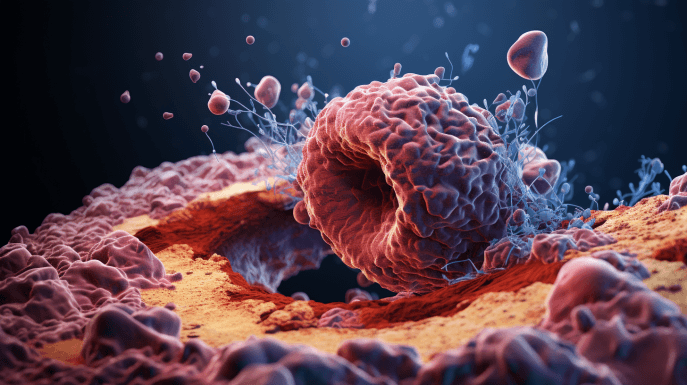
A-Z Guide to Pancreatic Cancer Treatment in the UAE
09 Jul, 2024
Pancreatic cancer - two words that can turn your world upside down. If you or someone you care about has received this diagnosis, you're probably feeling lost and scared. What does this mean for your future? What treatment options are available? And how can you ensure you're getting the best possible care? The clock is ticking, and every moment feels crucial. The overwhelming amount of information out there can leave you feeling more confused than ever. How do you separate fact from fiction and make the right decisions for your health? Take a deep breath. We're here to help. The UAE has emerged as a top destination for pancreatic cancer treatment, boasting cutting-edge technology and highly skilled oncologists. In this comprehensive guide, we'll break down everything you need to know about pancreatic cancer treatment in the UAE, from A to Z.
Most popular procedures in India
Symptoms of pancreatic cancer
- Abdominal pain or discomfort, often in the upper abdomen or back
- Jaundice, characterized by yellowing of the skin and whites of the eyes
- Unexplained weight loss, despite normal eating habits
- Loss of appetite and feelings of fullness even after eating small amounts
- Digestive problems such as oily, pale stools (steatorrhea), nausea, and vomiting
- New-onset diabetes or worsening of existing diabetes
- Fatigue that does not improve with rest
- Change in stool colour to light-coloured or greasy
- Persistent nausea and vomiting
- Blood clotting abnormalities may cause pain, redness, or swelling in the affected area.
Diagnosis of pancreatic cancer
1. Medical History and Physical Examination
a. Medical History: Diagnosing pancreatic cancer begins with a comprehensive medical history assessment. The doctor carefully reviews symptoms such as jaundice, abdominal pain, weight loss, changes in appetite, and digestive issues. A family history of pancreatic cancer or other cancers is crucial to assess genetic predisposition. Additionally, lifestyle factors such as smoking and alcohol consumption, along with previous medical conditions, are evaluated to understand potential risk factors.
Wellness Treatments
Give yourself the time to relax
Lowest Prices Guaranteed!

Lowest Prices Guaranteed!
b. Physical Examination: Following the medical history, a thorough physical examination is conducted. The doctor palpates the abdomen to detect any masses, swelling, or tenderness that may indicate pancreatic abnormalities. They also look for signs of jaundice, such as yellowing of the skin and eyes, which can be indicative of pancreatic cancer.
2. Imaging Tests
a. Ultrasound:
- Abdominal Ultrasound: This non-invasive test uses sound waves to create images of the abdominal organs, including the pancreas, to detect any abnormalities.
- Endoscopic Ultrasound (EUS): Combining endoscopy with ultrasound, EUS provides detailed images of the pancreas and surrounding tissues. It allows for precise imaging and facilitates fine-needle aspiration (FNA) to obtain tissue samples for biopsy.
b. CT Scan (Computed Tomography): A CT scan provides cross-sectional images of the body, enabling doctors to identify pancreatic tumours, evaluate their size and location, and assess whether cancer has spread to other organs.
c. MRI (Magnetic Resonance Imaging): MRI uses magnetic fields and radio waves to produce detailed images of the pancreas and nearby structures. It is particularly useful for evaluating the involvement of blood vessels and soft tissues.
2. Endoscopic Procedures
a. Endoscopic Ultrasound (EUS): EUS provides high-resolution images of the pancreas and allows for tissue sampling through fine-needle aspiration (FNA). This procedure is essential for obtaining biopsy samples necessary to confirm pancreatic cancer.
b. ERCP (Endoscopic Retrograde Cholangiopancreatography): ERCP uses an endoscope and X-rays to examine the pancreatic and bile ducts. It can assist in taking biopsies and performing interventions such as stent placement to alleviate blockages caused by tumours.
c. MRCP (Magnetic Resonance Cholangiopancreatography): MRCP is a non-invasive MRI technique that visualizes the pancreatic and bile ducts in detail, providing comprehensive imaging without the need for an endoscope.
3. Biopsy
a. Fine-Needle Aspiration (FNA): FNA involves using a thin needle to extract cells from the pancreas for microscopic examination. This procedure can be performed percutaneously (through the skin) or during an endoscopic procedure like EUS-guided FNA.
b. Core Needle Biopsy: Core needle biopsy utilizes a larger needle to obtain a more substantial tissue sample from the pancreas. This method provides detailed information about the characteristics of cancer cells and aids in determining the appropriate treatment approach.
Treatment Options for Pancreatic Cancer in the UAE
1. Surgery
a. Whipple Procedure (Pancreaticoduodenectomy)
The Whipple procedure, or pancreaticoduodenectomy, is a complex surgery aimed at treating pancreatic cancer located in the head of the pancreas. During this procedure, surgeons remove the head of the pancreas, part of the small intestine (duodenum), the gallbladder, and a portion of the bile duct. This extensive surgery is often recommended when the cancer is confined to the head of the pancreas and has not spread to other organs. While it is a major operation with a significant recovery period, advancements in surgical techniques, including minimally invasive approaches where applicable, have improved outcomes and reduced recovery times for eligible patients.
b. Distal Pancreatectomy
For pancreatic cancers located in the body or tail of the pancreas, a distal pancreatectomy may be performed. This procedure involves removing the affected portion of the pancreas, often including the spleen if necessary, while preserving the head and part of the body. It is suitable for tumors that have not spread to the pancreatic head or nearby blood vessels. Distal pancreatectomy can sometimes be performed using minimally invasive techniques, such as laparoscopy, which involves smaller incisions and generally leads to quicker recovery times compared to traditional open surgery.
c. Total Pancreatectomy
Total pancreatectomy is considered in cases where the cancer has spread extensively throughout the pancreas or involves critical structures nearby. This procedure involves the complete removal of the pancreas, along with portions of the small intestine, stomach, bile duct, gallbladder, and spleen. While it offers the potential for complete removal of the cancer, it results in lifelong diabetes due to the loss of insulin-producing cells in the pancreas. Total pancreatectomy is a complex surgery with significant implications for a patient's long-term health and requires careful consideration and management of postoperative complications.
2. Chemotherapy
a. Adjuvant Chemotherapy
Adjuvant chemotherapy is administered after surgical removal of the pancreatic tumour to eliminate any remaining cancer cells that may not be visible during surgery. This approach aims to reduce the risk of cancer recurrence and improve long-term outcomes for patients. Commonly used chemotherapy drugs, such as gemcitabine and 5-fluorouracil, are delivered intravenously or orally in cycles to target and destroy cancer cells throughout the body, including any micrometastases that may have spread beyond the pancreas.
b. Neoadjuvant Chemotherapy
Neoadjuvant chemotherapy is given before surgery with the goal of shrinking the tumor and making it more manageable for surgical removal. This approach is particularly beneficial in cases where the tumour is large or involves nearby blood vessels, making surgery challenging. By reducing the tumour size and potentially eliminating micrometastases early in the treatment process, neoadjuvant chemotherapy can increase the likelihood of successful surgical outcomes and improve the overall prognosis for patients with pancreatic cancer.
c. Systemic Chemotherapy
Systemic chemotherapy is the primary treatment option for advanced or metastatic pancreatic cancer where surgical removal is not feasible due to the spread of the disease. These chemotherapy drugs are designed to target rapidly dividing cancer cells throughout the body, slowing down the progression of the disease and improving symptoms. Combinations of chemotherapy agents, such as FOLFIRINOX or gemcitabine with nab-paclitaxel, are commonly used to enhance effectiveness and minimize side effects, offering patients the best possible quality of life and survival outcomes.
3. Radiation Therapy
a. External Beam Radiation Therapy (EBRT)
External beam radiation therapy (EBRT) uses high-energy rays directed at the tumour from outside the body to destroy cancer cells and shrink tumours. It is often used in combination with chemotherapy (chemoradiation) to enhance treatment effectiveness. EBRT is carefully planned to minimize exposure to healthy tissues surrounding the pancreas, and advanced imaging techniques ensure precise targeting of the tumour. This approach can be particularly beneficial for patients who are not surgical candidates or as an adjuvant therapy following surgery to reduce the risk of cancer recurrence.
b. Stereotactic Body Radiotherapy (SBRT)
Stereotactic body radiotherapy (SBRT) delivers high doses of radiation to the tumour with extreme precision, minimizing damage to surrounding healthy tissues. This non-invasive treatment option is suitable for patients with localized pancreatic tumours who may not tolerate surgery or conventional radiation therapy. SBRT is typically delivered over a few sessions, making it a convenient and effective alternative to traditional radiation therapy for selected patients with pancreatic cancer.
- Established Year: 2008
- Location: 37 26th St - Umm Hurair 2 - Dubai Healthcare City, Dubai, United Arab Emirates
About The Hospital
- Mediclinic City Hospital is a state-of-the-art healthcare facility. It is equipped with the latest technology and staffed by highly trained professionals.
- Number of Beds: 280
- Number of Surgeons: 3
- The hospital boasts 80 doctors and over 30 specialists.
- Neonatal Beds: 27
- Operating Rooms: 6, plus 3 daycare surgery units, 1 C-section OT
- Cardiac Catheterisation Laboratories: 2
- Endoscopy suites, fully equipped laboratory, emergency department, labour and post-natal wards.
- Advanced Medical Technology: PET/CT, SPECT CT, and 3T MRI.
- The hospital offers specialist-focused treatment in areas such as cardiology, radiology, gynaecology, trauma, nuclear medicine, endocrinology, and more.
- Mediclinic City Hospital offers specialities in Urology, Neurology, Gynaecology, General Surgery, Gastroenterology, E.N.T, Dermatology, Cardiology, Oncology, Orthopedics, Ophthalmology, Bariatric Surgery, Paediatric Neurology, Paediatric Oncology, and Paediatric Orthopaedics, staffed by top doctors in each field.
- Established Year - 2004
- Location: Doha Street, Al Nadha 2, Al Qusais, Dubai, U.A.E., United Arab Emirates
Hospital Overview
- Founded by Dr. Zulekha Daud in the mid-1960s
- Started as a dream to provide affordable medical facilities
- Evolved into a network of hospitals in the UAE, Bahrain, and Oman
- Number Of Beds: 140
- Number of ICU Beds: 10
- Operation Theaters: 3
- Started as a dream to provide affordable medical facilities
- Evolved into a network of hospitals in the UAE, Bahrain, and Oman
- Offers inpatient and outpatient care with a wide range of specialties
- Centres of excellence in Cardiology, Plastic Surgery, General Surgery, Oncology, Ophthalmology, Orthopedics, and Urology
- Specialized services include Cardiac Catheterization Laboratory, Neonatal Intensive Care Units, ICU, Dialysis, Radiology, Minimal Invasive Surgeries, Bariatric Surgeries, Joint Replacement Surgeries, Specialized Cancer Care, Cardio Thoracic, and Vascular Surgery
- Zulekha Hospital in Dubai specializes in Urology, Neurology, Gynecology, General Surgery, Gastroenterology, E.N.T (Ear, Nose, and Throat), Dermatology, Cardiology, Oncology, Orthopedics, Ophthalmology, and Bariatric Surgery. These specialities ensure that patients receive specialized and comprehensive healthcare services.
Success Rates of Pancreatic Cancer in the UAE
Pancreatic cancer treatment success rates in the UAE, as in any region, depend significantly on various factors, particularly the stage at which the cancer is diagnosed. Pancreatic cancer is known for its aggressive nature and generally low survival rates, but early detection can substantially improve treatment outcomes.
Here is an overview of the 5-year relative survival rates for pancreatic cancer in the UAE:
- Localized (confined to the pancreas): 37%
- Regional (spread to nearby lymph nodes): 10%
- Distant (spread to distant organs): 3%
Cost of Pancreatic Cancer Treatment in the UAE
The cost of pancreatic cancer treatment in the UAE can vary depending on several factors, including:
- The stage and severity of cancer
- The type of treatment needed (surgery, chemotherapy, radiation therapy, etc.)
- The experience and qualifications of the healthcare provider
- The hospital or clinic where treatment is received
- The medications used
How can HealthTrip assist with your treatment?
If you're seeking Pancreatic Cancer, let HealthTrip be your compass. We support you throughout your medical journey with the following:
- Access to top doctors in 38+ countries and the largest health travel platform.
- Partnerships with 1500+ hospitals, including Fortis, Medanta, and more.
- Treatments in neuro, cardiac care, transplants, aesthetics, and wellness.
- Post-treatment care and assistance.
- Teleconsultations with leading doctors at $1/minute.
- Over 61K patients served.
- Access Top treatments and packages, such as Angiograms and many more.
- Gain insights from genuine patient experiences and testimonials.
- Stay updated with our medical blog.
- 24/7 unwavering support, from hospital formalities to travel arrangements or emergencies.
Hear from our satisfied patients.
In the UAE, accessing specialized care for pancreatic cancer is crucial for improving treatment outcomes. With advanced hospitals and dedicated healthcare professionals, early diagnosis and tailored treatments offer hope to patients navigating this challenging journey.
Most popular wellness packages
Related Blogs

Vulvar Cancer Treatment in the UK: Expert Care for Patients from Russia
Vulvar cancer, though rare, is a serious condition that requires
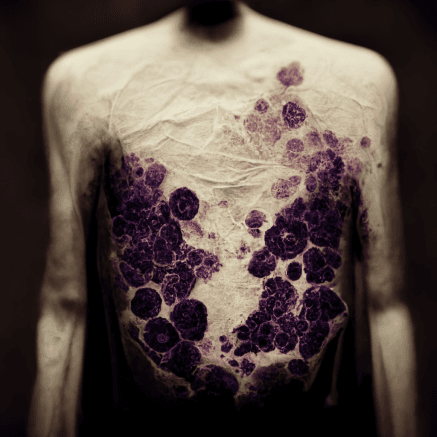
Hodgkin's Lymphoma Treatment in the UK: Advanced Options for Patients from Russia
Hodgkin's Lymphoma (HL) is a serious condition that affects the
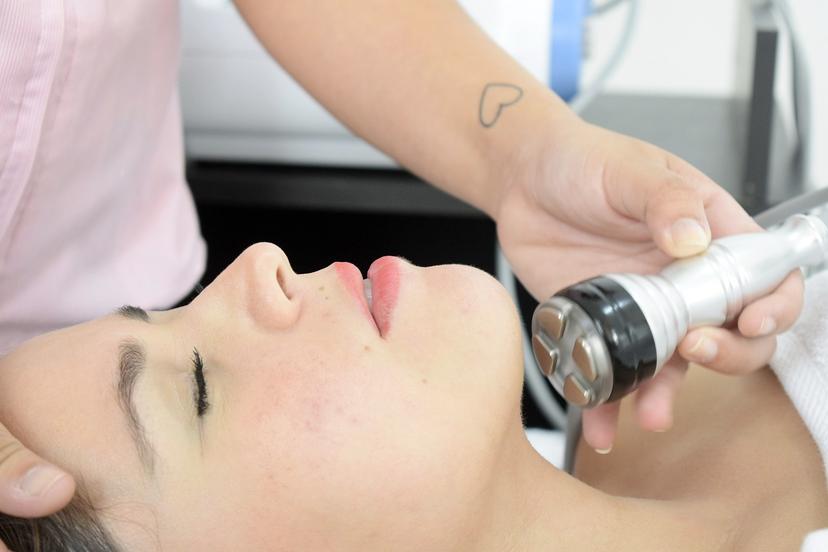
Best Hospitals in Thailand for Skin Cancer Treatment
Skin cancer, a condition arising from abnormal growth of skin
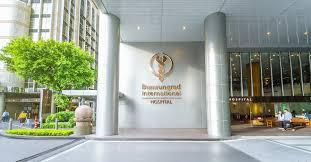
Top Hospitals for Colonoscopy in Thailand
In the quest for optimal health, colonoscopy plays a crucial

Top Hospitals for Brain Surgery in Thailand
When it comes to brain surgery, choosing the right hospital
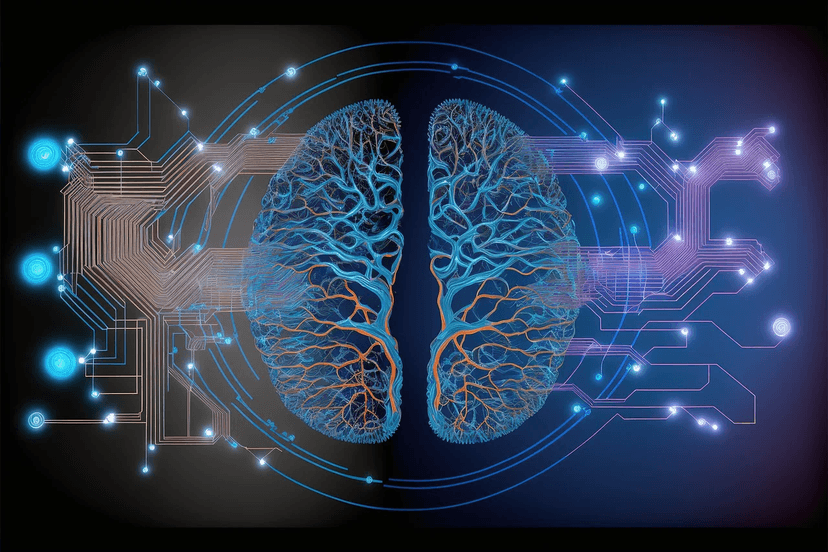
Neurological Treatments in the UK: Cutting-Edge Care for Brain Tumors
When it comes to neurological conditions, particularly brain tumors, the











